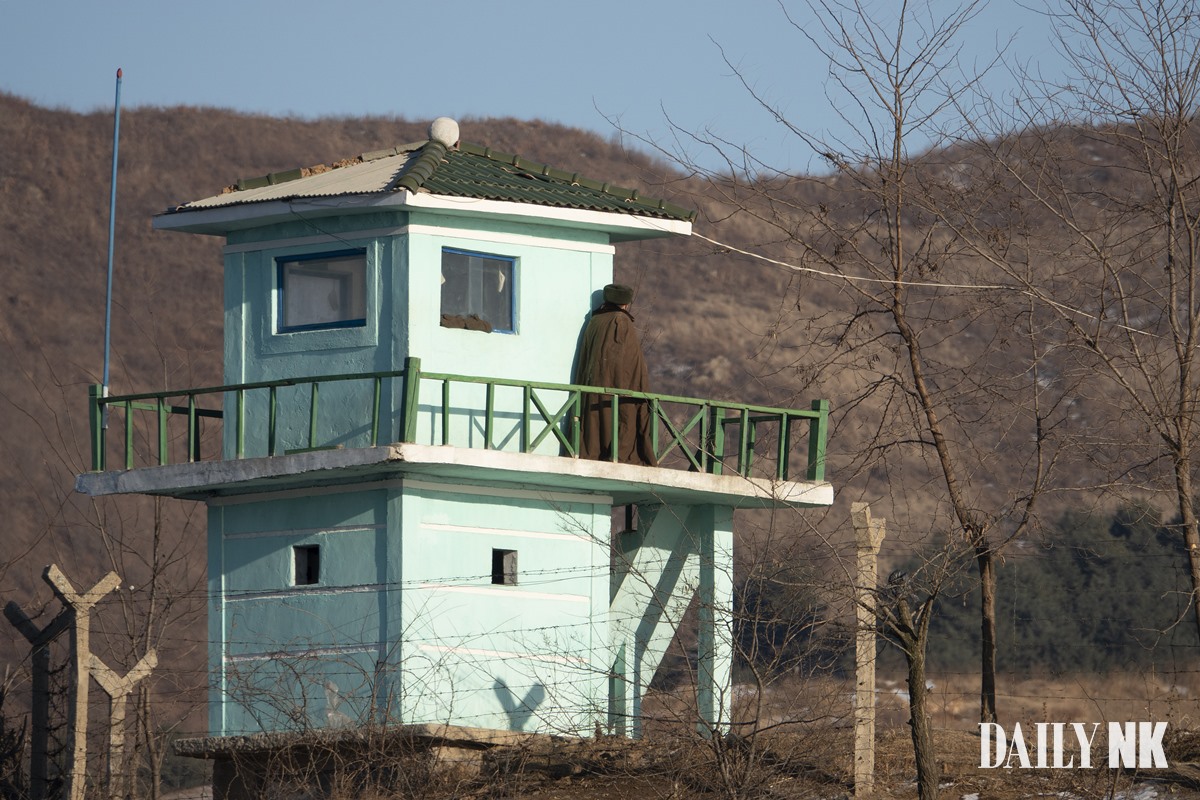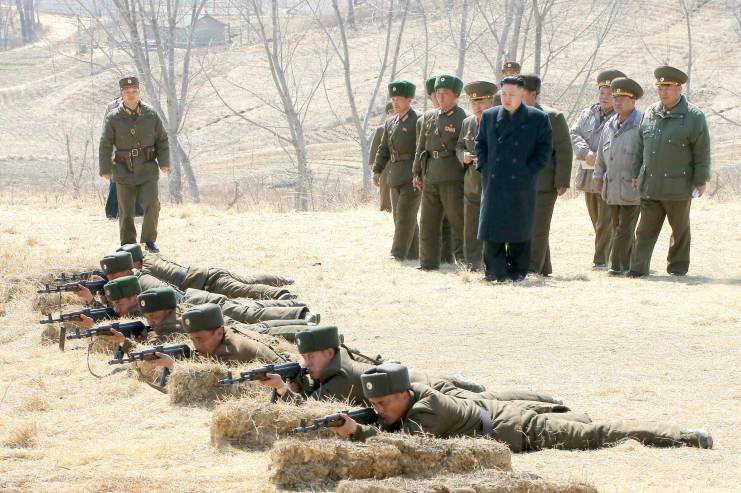For almost a year, North Korea has completely sealed off the Sino-North Korean border in response to the COVID-19 pandemic. This was an aggressive measure aimed at completely blocking the entry of the coronavirus, but also led to significant negative side effects for the country.
North Korea is facing serious economic problems because the closure of the border has hindered trade with China. What is more, the border blockade has greatly upset residents along the border who made their livelihoods from smuggling but who are now bereft of income. Meanwhile, the deployment of the Storm Corps to the border to enforce the closure has seriously weakened the country’s fighting power.
In this special year-end article, Daily NK examines what side effects are emerging inside North Korea in the wake of the closure of the border and what the country has “lost” due to the border shutdown.
GROWING ECONOMIC MALAISE
According to data released by the Korea International Trade Association on Dec. 10, trade between North Korea and China in October fell to an all time low, decreasing 99.4% compared to the same period last year. Likewise, aggregate Sino-North Korean trade between January and October this year fell about 76% compared to the same period last year.
With Sino-North Korean trade coming to a virtual standstill due to the closure of the border, North Korea has been suffering from a worsening shortage of foreign currency. Recently, in fact, the North Korean won-dollar exchange rate dropped to the KPW 6,000 range. Daily NK’s reporting suggests the fall in the exchange rate may be due to a ban on the use of foreign currency as part of the government’s efforts to “absorb” foreign currency held by private citizens.
Daily NK understands, however, that North Koreans are refusing to spend their foreign currency. “People think that as the economy grows worse, you need to have dollars and yuan,” a source in North Korea told Daily NK recently. “So now, sellers of used goods are doing brisker business than money changers.”
What this suggests is that North Koreans have begun putting their used televisions, motorcycles and other items on the market instead of foreign currency. This, in turn, has led to the emergence of used goods sellers. Daily NK’s source said that these merchants believe trade with China will restart after the Eighth Party Congress early next year, so they are buying items as cheaply as possible now and plan to sell these goods at higher prices when demand picks up later.
RISING DISCONTENT
Residents of the Sino-North Korean border region, who rely on smuggling to make a living, have largely lost their incomes with the border being slammed shut, and now complain of hardships “even worse than those [suffered during] the Arduous March.”
“Now, donjuLiterally "masters of money," donju refers to people who hav... More can’t earn even a single cent a day,” a source in Yanggang Province told Daily NK recently, using a term to describe North Korea’s wealthy entrepreneurial class. “If you’re eating two meals a day, you’re doing well. Most people are eating just a single meal of porridge or rice mixed with radish leaves a day.”
He added: “Nowadays, you find a lot of dead homeless people in the morning around Hyesan or Wiyon train stations, near university dormitories or in construction sites near [Yanggang Province’s] provincial theater. With people starving to death all around, the atmosphere is bleak.”

Local discontent toward the authorities is rising as military units from the interior of the country deployed to the border conduct intensified crackdowns and patrols. North Korea experts suggest that this public disaffection could lead to a weakening in solidarity toward the regime, something North Korea’s leadership is very concerned about.
Kim In-tae, a senior researcher at South Korea’s Institute for National Security Strategy, recently told Daily NK that “now was the most difficult situation [in North Korea] since Kim Jong Un came to power,” and that “North Korea’s internal risk index, too, will inevitably rise.”
According to him, “In order to stably manage public sentiment, you need to improve the lives of the people, but it’ll be tough to bring about economic improvement that can immediately stabilize people’s livelihoods. I’m not that optimistic about next year, either.”
THE SCOURGE OF THE STORM CORPS
North Korea has deployed the Storm Corps (11th Corps), a special forces unit, along the entire Sino-North Korean border to enforce the border blockade. A military organization equivalent to the South Korean army’s Special Warfare Command, it is considered the country’s most elite unit, so much so that within North Korea, the force is called a “murder weapon.”
The unit’s original purpose was to secretly infiltrate enemy positions and attack rear areas to sow confusion in wartime. But now, with North Korean authorities making quarantine efforts their top priority, members of the unit are monitoring the border for smugglers and performing general guard duty at the border.

“With the Storm Corps coming to the border, they haven’t been able to properly take part in the winter training that began on Dec. 1,” a source familiar with the situation told Daily NK. “Its combat strength will inevitably weaken because it cannot prepare for war or combat.”
Above all, a rising number of the unit’s personnel are reportedly suffering health problems due to poor accommodations and food. As per regulations, Storm Corps troopers are supposed to receive 800 grams to one kilogram of rations a day, but now they receive only about 600 grams. Moreover, they cannot eat “home-cooked meals” due to their mistreatment of people in the border region, and they are suffering various ailments due to weakened immunity stemming from malnutrition.
“For units operating on the border, it’s hard to get a foothold without support from local residents, but now locals hate the Storm Corps even more than the US because they are cracking down on smuggling and don’t treat them like people,” the source said. “[Storm Corps personnel] can’t receive their regular rations and can’t buy food on credit from shops. They are living in temporary structures without places to wash themselves, so there are an increasing number of troopers who are suffering from disease.”
Please direct any comments or questions about this article to dailynkenglish@uni-media.net.

















